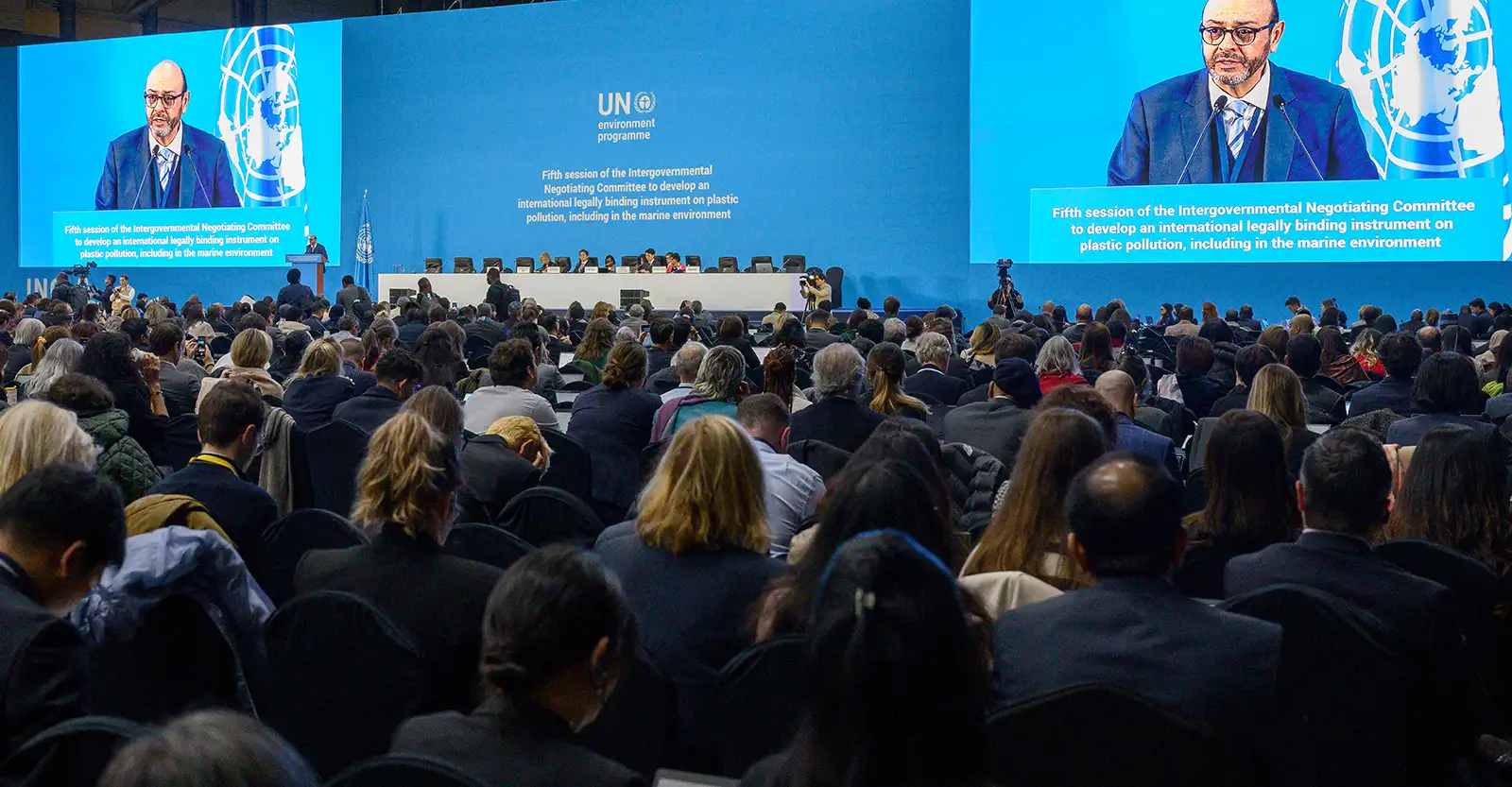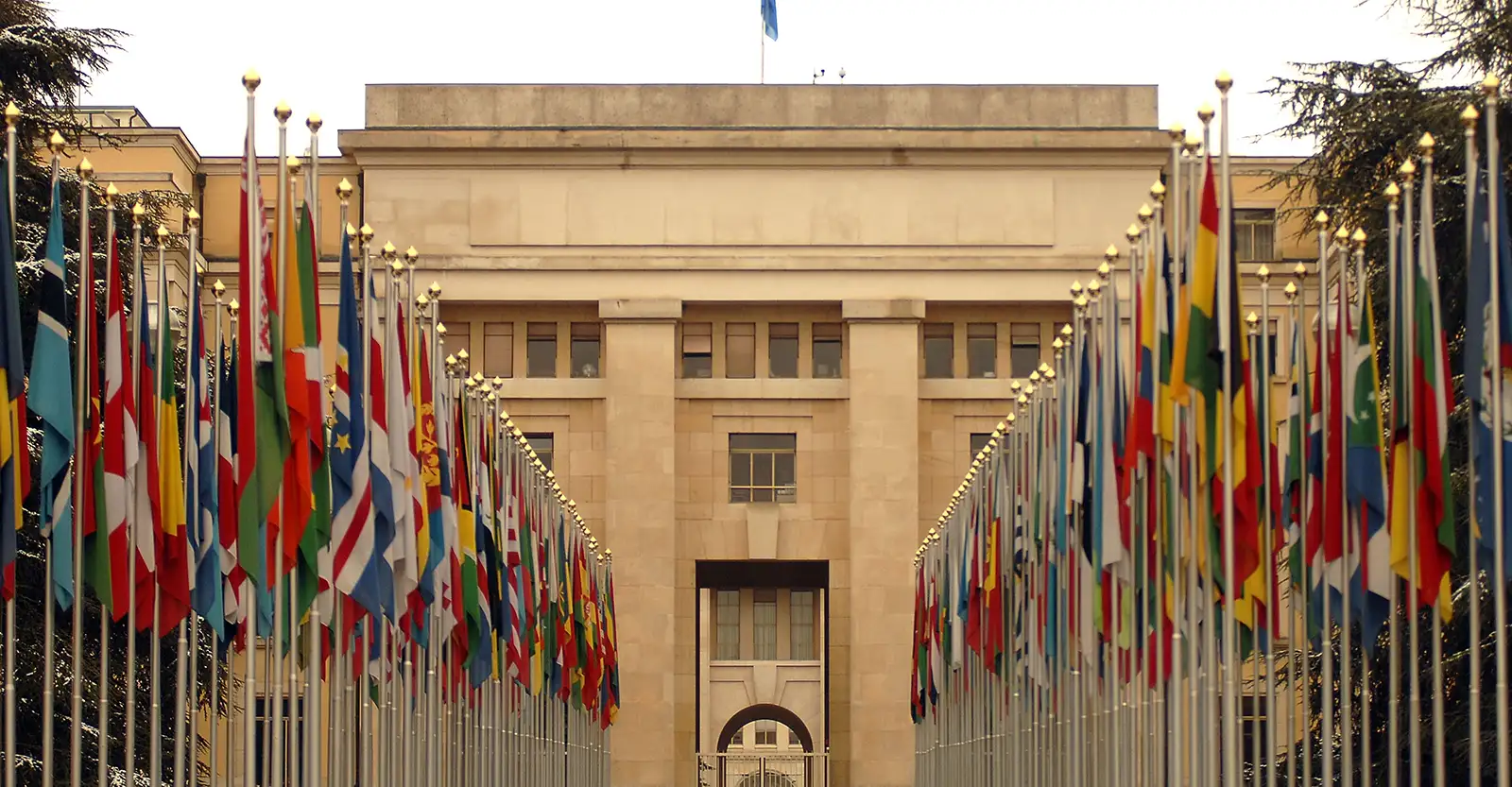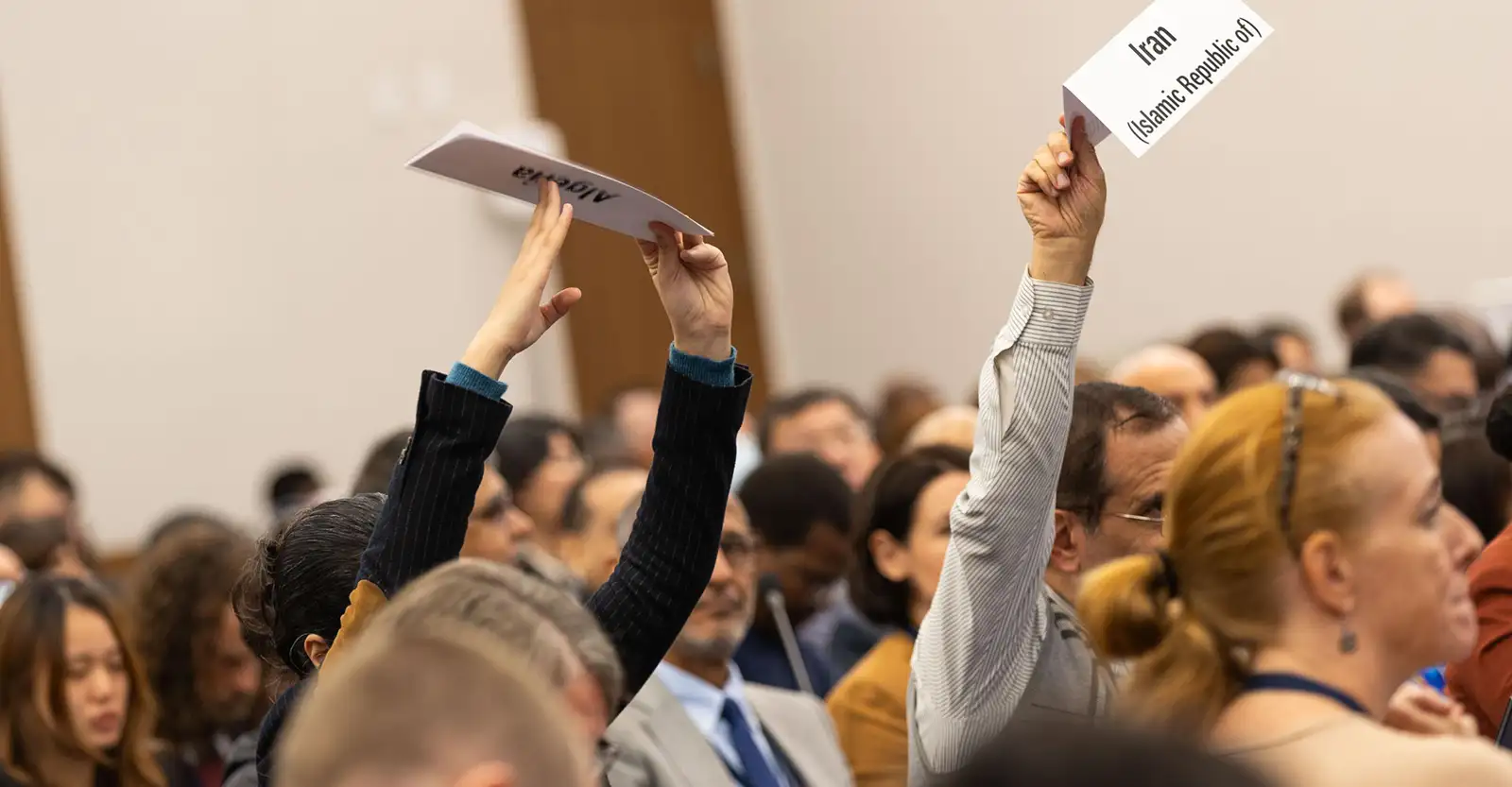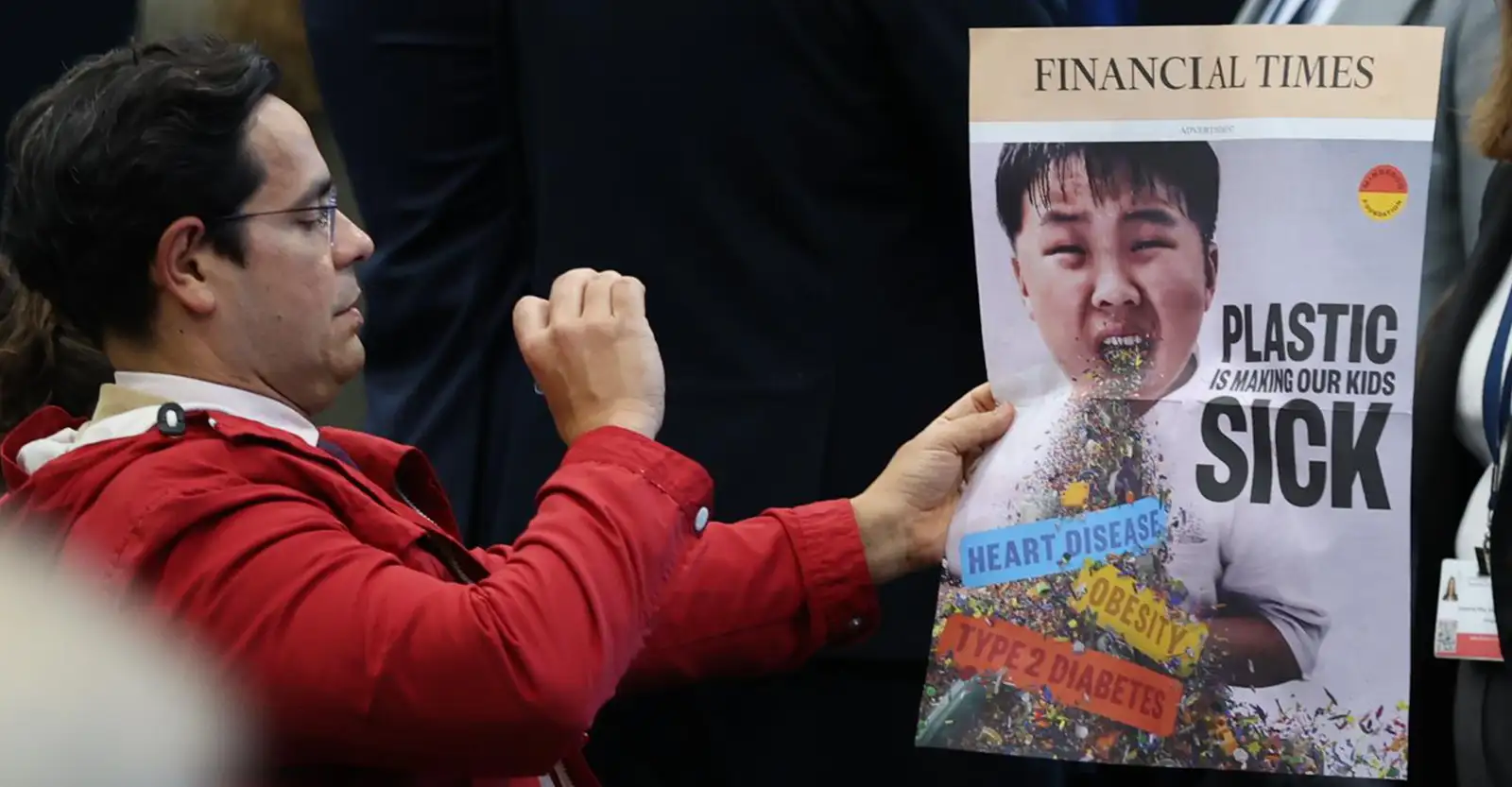Last time, talks stalled. Here’s why — and what’s on the agenda for INC-5.2, the final frontier of negotiations for a Global Plastics Treaty, and how we’re working to drive real, lasting change.
Imagine standing at the mouth of a great river, watching as waves of plastic waste and toxic chemicals surge toward the ocean.
The pollution isn’t just washing up onshore – it’s pouring in from upstream, fuelling a growing crisis that threatens marine life, human health, and entire ecosystems.
Most people are working urgently to stem the flow. They want to reduce plastic production and phase out harmful chemicals before they ever reach the water.
But a handful of powerful players are doing the opposite.
Instead of helping to stop the flood, they’re dredging deeper channels, arguing that plastic is essential and that blocking the flow would be too disruptive.
They’re not just standing by - they’re making the problem worse.
Meanwhile, the tide of plastic keeps rising. Every delay means more plastic in our oceans, more toxins in our bodies, and a harder fight to reverse the damage.
This is what’s happening with the Global Plastics Treaty negotiations.
While most of the world is pushing for strong measures to reduce plastic production and eliminate toxic plastic chemicals, progress is stalled by the fossil fuel industry and its allies – keeping the plastic pipeline open at the expense of our health and our environment.

At what was intended to be the final round of negotiations for a Global Plastics Treaty in Busan in late 2024, consensus couldn’t be reached even though 85 countries backed the Stand Up for Ambition statement led by Rwanda.
What did the “Stand up for Ambition” statement call for?
The statement emphasised the need for strong, mandatory measures, including:
- Global targets to reduce plastic production
- Phasing out harmful plastics and toxic chemicals
- Financial and technical support for developing countries
It also highlighted the need for a just transition — ensuring that no one is left behind in the shift toward a plastic-free future — and called on all nations to honour the UN mandate by negotiating a treaty that is ambitious, enforceable, and equitable.
While delays were not what many had hoped for, they’re not unusual.
International treaties often take years (and years) to finalise because they involve complex negotiations between countries with different priorities.
The goal of reaching a treaty within two years — following the adoption of UNEA Resolution 5/14 in March 2022 — was always ambitious.
And despite not reaching the 2024 target, the ambition remains.
Each round of negotiations has gone deeper into the key issues. And at INC-5.1, countries made it clear where their red lines are.
And despite fossil fuel interests derailing progress, a strong majority of countries remain committed to delivering an effective treaty as we head into INC-5.2.
If you want to know more about INC-5.1 and why talks stalled, you can read the full story here.

INC-5.2 is the next round of official talks aimed at delivering a global plastics treaty to tackle plastic pollution.
It will bring together representatives from UN Member States, NGOs, scientists, industry bodies, international organisations and other stakeholders.
The focus will be on ironing out key areas of disagreement and working towards a final treaty text.
To streamline negotiations and discussions to date, parties have agreed that the Chair’s Text (released 1 December 2024) will be the starting point for negotiations at INC-5.2. The text is a draft that seeks to address plastic pollution across its entire lifecycle, including:
- Regulating plastic products and harmful chemicals
- Addressing consumption and production levels
- Financial resources and mechanisms to support the implementation of the treaty
- Plastic waste management
- Plastic waste management
- Plastic product design requirements
Between now and INC-5.2, dialogue and collaboration will continue behind the scenes to bridge differences and build the momentum needed to get the treaty over the line.
The goal is to ensure that by INC-5.2, more countries are aligned and can move closer to a unified solution.

Reaching consensus isn’t easy when over 170 countries are involved.
The process is complex, and differences in national interests, economic priorities, and political pressures make agreement difficult.
But every round of talks — including INC-5.1 — has laid crucial groundwork, surfaced key issues and provided a platform to push for progress.
INC-5.2 is scheduled for 5 to 14 August 2025. During this session, the ambition is to finalise a draft treaty.
How long it will take to formalise the treaty is difficult to predict — but if all goes to plan, countries will move through the processes of signing and ratification which in most cases will require domestic legislation.
As a country involved in the negotiations, Australia is helping shape the global plastics treaty.
Once the treaty is finalised, Australia will need to formally sign, ratify and implement it into domestic law in Australia.

We believe the treaty must include:
a) Legally binding obligations to phase out the most harmful plastics and chemicals used in plastic manufacturing, and b) a polymer premium.
In the lead-up to INC-5.2, we will continue to advocate for a treaty that delivers meaningful, lasting change — for people and the environment.